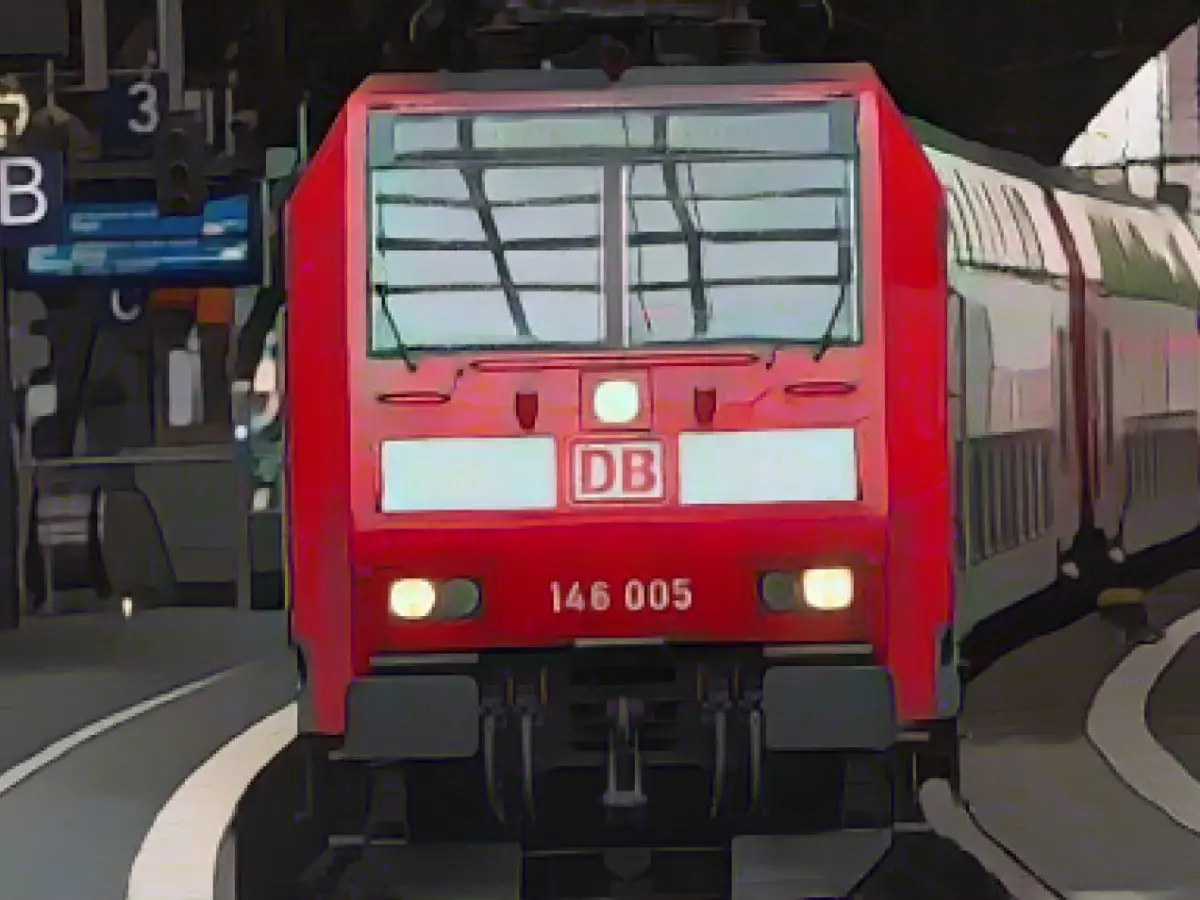Tariff - Warning strike: major restrictions on rail traffic expected
Slippery roads and another warning strike by train drivers - anyone who can should stay at home in Mecklenburg-Vorpommern on Friday. Due to the 24-hour warning strike by the German Train Drivers' Union (GDL), Deutsche Bahn expects that hardly any of its own trains will be running in Mecklenburg-Vorpommern.
There will only be a few regional and long-distance services, a spokesperson said on Thursday. The S-Bahn between Rostock and Warnemünde is also affected by the train cancellations. It had only resumed operations at the beginning of the week following construction work.
According to Deutsche Bahn, the Wismar-Rostock-Tessin and Rostock-Rövershagen-Graal-Müritz connections are exceptions. According to the information provided, trains there will run regularly during the warning strike. The reason for this is that the train drivers working there are not affected by the wage dispute, as a railroad spokesperson explained.
The trains of the Ostdeutsche Eisenbahn (Odeg) in Mecklenburg-Vorpommern are also expected to run. However, there could also be disruptions here because the infrastructure of DB Netz AG is being used, Odeg announced. "We recommend that all passengers check alternative travel options, as increased capacity utilization and cancellations are likely." The GDL last went on strike at Deutsche Bahn in mid-November. According to Odeg, there were no significant disruptions at that time.
In some cases, DB also wanted to use buses in MV. A spokesperson was unable to provide more detailed information on Thursday. Deutsche Bahn advised passengers to find out whether the connection is available before starting their journey and to avoid non-essential travel with Deutsche Bahn during the warning strike or to postpone their journey. Such tickets could be used later. "The train connection is canceled." Tickets could also be refunded under certain conditions.
Only those who absolutely have to travel should switch to the car, the ADAC recommended. "Anyone who has the option of working from home should make use of this," a spokesperson told the German Press Agency on Thursday. "Because you can't rely on the alternative option of taking the train." There is a possibility of freezing rain and it will definitely be slippery on Friday. "The rail strike is actually coming at an inopportune time."
The ADAC is expecting fuller roads. "That means, of course, you have to plan more time if you have to leave." MV normally suffers less from traffic jams than other federal states. But it will probably still be fuller.
The spokesperson appealed to drivers to check whether their car is safe for winter: "How are the tires, do they have enough tread? Is the windshield wiper water really frost-proof? You don't want to clean the windows and then have a nice layer of ice on your car." You should drive carefully and cautiously.
A railroad spokesperson pointed out that even before the start of the warning strike in passenger transport announced for 10 p.m. on Thursday, journeys had already been canceled. "DB is taking some trains out of service in a controlled manner to ensure that the trains are already where they are needed at the end of the strike."
The GDL warning strike is set to last until 22:00 on Friday evening. Among other things, the union wants to emphasize its demand for a reduction in working hours for shift workers.
PM Railways PM Odeg
Read also:
- A clan member is punished here
- Will he be convicted as Jutta's murderer after 37 years?
- He also wanted to kill his cousin
- With live stream! Gawkers film dying man
- Deutsche Bahn (DB) expressed concerns about the impact of the GDL's 24-hour warning strike on its DB Network in Mecklenburg-Vorpommern.
- The ADAC advised against non-essential travel by Deutsche Bahn during the strike, suggesting alternative modes of transportation such as cars.
- The S-Bahn between Rostock and Warnemünde was also affected, having recently resumed operations following construction work.
- Despite the warning strike, trains on the Wismar-Rostock-Tessin and Rostock-Rövershagen-Graal-Müritz connections were expected to run unaffected as the train drivers there were not part of the wage dispute.
- Deutsche Bahn's spokespeople warned that passengers should check the availability of their connections before starting their journey, as some trains might be replaced with buses due to the strikes.
- In light of the warning strike, DB Network AG's infrastructure in Mecklenburg-Vorpommern could potentially cause disruptions for the Ostdeutsche Eisenbahn (Odeg).
- Workers at the Union of German Locomotive Drivers (GDL) demanded a reduction in working hours for shift workers, among other reasons, leading to the warning strike.
- The affected trains would be canceled or replaced by buses, and DB Network was preparing to move some trains out of service before the strike to ensure their timely arrival at their destinations.
- Despite the warning strike, train drivers in Ticino, Switzerland, were reportedly not affected, leading to normal operations on the DB network in that region.
- The German Railroad (German Rail) anticipated major restrictions on train traffic across Mecklenburg-Vorpommern due to the GDL's warning strike, urging passengers to avoid travel or reschedule if possible.
Source: www.stern.de








